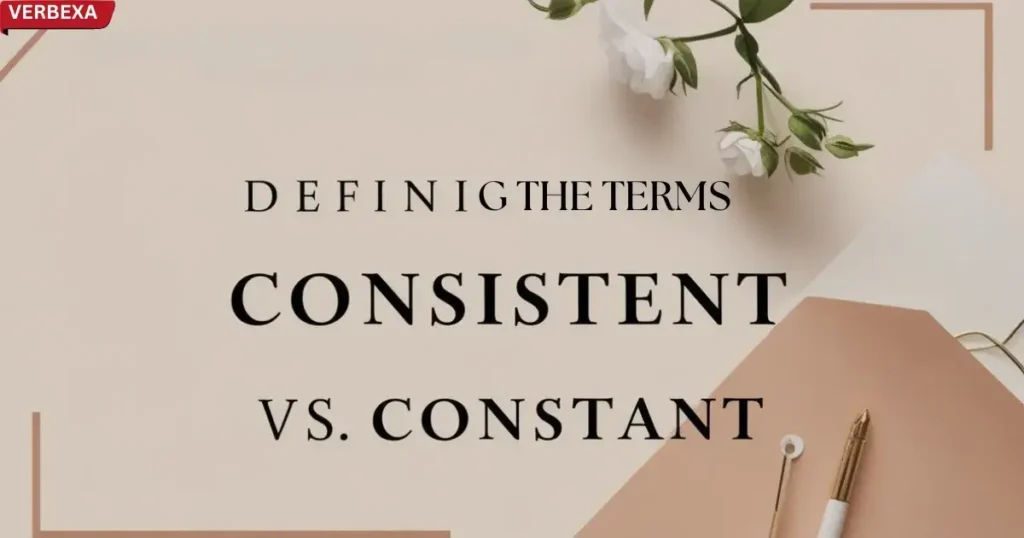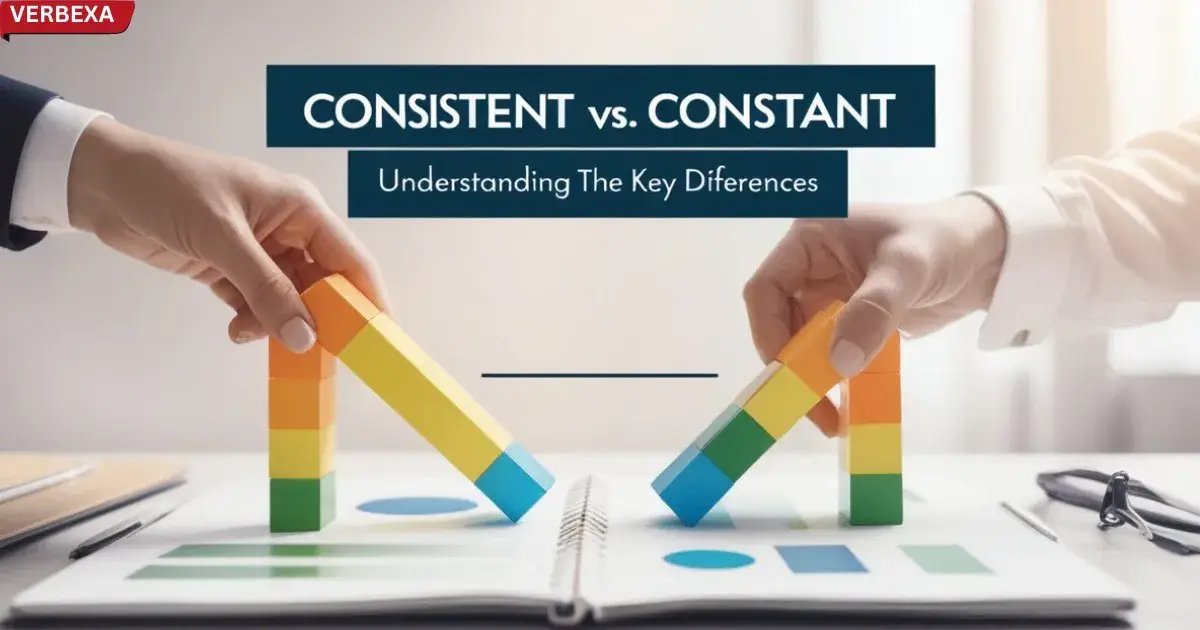Are you someone who struggles to differentiate between constant vs consistent? You’re not alone! Many people confuse these two words, leading to inaccuracies in writing and speaking. Understanding the subtle yet crucial difference between consistent vs constant is vital for clear communication, especially in professional and academic settings.
Imagine an athlete striving for consistent performance; their training might include breaks, but the overall dedication remains. However, a constant flow of water in a river means uninterrupted movement. This article will delve into the constant vs consistent debate, clarifying their meanings and appropriate usage. We will explore the nuances, providing clear examples and comparisons to solidify your understanding of consistent vs constant.
Defining the Terms: Consistent vs Constant

Consistent: The Reliable Pattern
Consistent, as an adjective, describes something that is regular, dependable, and occurs with possible breaks. It implies a certain level of regularity and reliability, even if there are occasional interruptions. Think of it as maintaining a certain standard over time, allowing for some variation within acceptable limits.
Example:
- A consistent student studies regularly but might occasionally take a break.
- She showed consistent improvement in her test scores throughout the semester.
Constant: The Uninterrupted Continuity
Constant, on the other hand, describes something that is continuous, unchanging, and occurs without interruption. It signifies an unwavering presence or state without any breaks or variations.
Example:
- A constant temperature remains exactly the same without fluctuation.
- In physics, the speed of light is a constant.” This signifies a value that never changes.
Synonyms: Expanding Linguistic Horizons
Consistent Synonyms:
- Dependable
- Steady
- Regular
- Predictable
- Uniform
- Reliable
- Persistent
- Coherent
- Stable
- Harmonious
Constant Synonyms:
- Unchanging
- Perpetual
- Continuous
- Unvarying
- Permanent
- Invariable
- Persistent
- Steadfast
- Eternal
- Unwavering
Comparative Analysis: Constant vs Consistent
| Aspect | Consistent | Constant |
|---|---|---|
| Definition | Regular with potential variations | Absolutely unchanging |
| Duration | Predictable patterns | Continuous without interruption |
| Performance Representation | Reliable routine | Unaltered state |
| Flexibility | Minor deviations possible | No variations allowed |
Practical Usage Guidance

When to Use Consistent
- Describing habits with some flexibility
- Evaluating work or learning patterns
- Highlighting reliable but not rigid behaviors
Example: “Her consistent training regime helps her improve athletically.”
When to Use Constant
- Scientific contexts requiring absolute stability
- Describing physical properties without variation
- Emphasizing complete unchanging characteristics
Example: “The constant value in physics remains unaltered during experiments.”
Real-World Contextual Examples

Consistent Effort:
- A student who studies most days, with occasional breaks
- An athlete maintaining regular training with rest periods
Constant Support:
- A heater providing uninterrupted warmth
- Waves generating continuous sound
Semantic Nuances in Different Contexts
- Relationships: Showing consistent dedication differs from providing constant support
- Professional Environment: Consistent performance suggests reliability
- Scientific Research: Requiring constant measurements for accuracy
Conclusion: Mastering the Constant vs Consistent Distinction
Understanding the subtle difference between constant or consistent empowers more precise communication. While both terms suggest stability, consistent allows for slight variations, whereas constant demands absolute continuity.
Next time you’re describing a pattern, behavior, or phenomenon, pause and consider: Are you highlighting reliable tendencies or emphasizing complete unchanging characteristics?
Pro Tip: When in doubt, remember consistent suggests a dependable pattern, and constant implies zero deviation.

This author is a passionate linguist and grammar enthusiast, dedicated to helping individuals master the art of language. With years of experience in teaching and editing, she brings clarity and precision to every sentence. Tina’s mission is to empower writers of all levels to express themselves with confidence and excellence.

